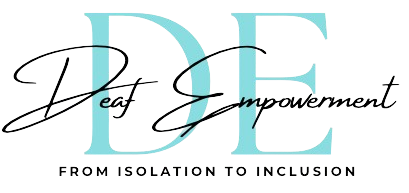A Personal Story on Deaf Employment
In today’s workplace, diversity and inclusion are more than just buzzwords—they’re vital components of a thriving business culture. To explore how these principles play out in real-world scenarios, we sat down with a remarkable individual who is deaf, along with his coworkers and boss, to gain insight into their experiences. This interview sheds light on the unique challenges and triumphs faced by a deaf employee. It reveals how communication, support, and understanding can transform not just the workplace but also the relationships and people within it. Take an inner look at the incredible perspectives held by these amazing individuals. The interview was conducted at a local beauty supplier, Paramount Beauty. The deaf individual we worked with, Mandeep Singh, took us in and allowed us to observe his work. It seemed that work was the place that Mandeep thrived. Working there for over 20 years, he was confident and skilled. He was easily able to maneuver a forklift, and work with products that needed to be shipped. Mandeep even was in charge of a group of nondisabled people, and took the title of supervisor. To get a greater idea of what Mandeep’s working environment was, we interviewed his coworkers on what it was like to work with him. The first person we talked with was Gabriel Leo, and we were thrilled with what he had to say. Gabriel: “What I think about deaf individuals, is that they are the same as everyone. We have to work with them, just as the others. It doesn’t make a difference between them and let’s say ‘regular people.’ We work all together.” Gabriel was so lovely to hear from. He showed commitment to inclusivity in the workplace, recognizing that deaf individuals are equal team members. Gabriel emphasized that working together is key, regardless of differences. This mindset fosters a more integrated and supportive work environment, where everyone is valued equally. The next coworker we talked to, Bella, gave us insight on how she worked and communicated with him. She explained when talking, they simply had to use a pen and paper to get the message across. She explained how there is no real difficulty added. The only difference between working with him and with others is when she needed him, she had to find him instead of calling out. But she did not mind the extra step, and she kindly adapts to his needs without issue.




